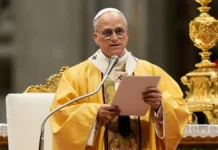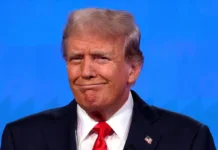The United States Supreme Court’s decision to expand presidential immunity has caused alarm among legal experts, who fear the ramifications may extend beyond the country’s borders.
The US Supreme Court found this week that former presidents have presumptive immunity from prosecution for “official acts”. This ruling doesn’t just place Donald Trump above the law.
The true danger of the opinion is that it could protect precisely the kind of official acts that might destroy the American Republic itself.
The origin of the idea that the official acts of a president are immune from prosecution is found in a case about a fired whistleblower.
On Monday, the court’s conservative majority ruled that any “official acts” a president takes — even beyond the office’s “core constitutional functions”—would enjoy “presumptive immunity” from prosecution.
But in the US, the president also serves as the head of the military, and experts say Monday’s decision could further strengthen a culture of impunity for actions taken abroad.
Samuel Moyn, a professor of law and history at Yale University, said the decision erodes the few guardrails left to govern US foreign policy.
Already, the US Congress gives presidents wide latitude to take actions overseas, and the country refuses to recognise the authority of bodies like the International Criminal Court (ICC).
The ruling came about after former President Donald Trump asserted far-reaching claims to presidential immunity, as he tried to dodge four separate criminal indictments in US courts.
“Trump asserts a far broader immunity than the limited one we have recognized,” the court majority explained in its opinion.



















